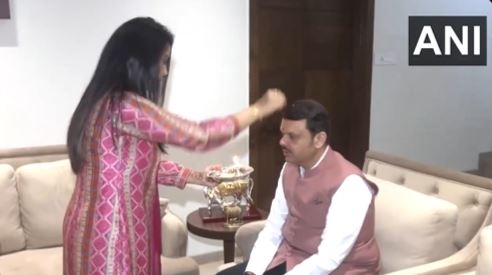
- Raghuram Rajan\'s monetary policies have just raised bank loan costs
- Despite the economy being in good shape, Rajan braced for inflation
- One of the few people to hit out at Raghuram Rajan was Subramanian Swami
- Swami hinted at a conspiracy of of intellectuals, economists
- Is Raghuram Rajan just a celebrity who hasn\'t performed at all?
- What do the middle class, small scale industries effectively feel?
On 20 September, 2013, the commercial markets were beaming with expectations. Raghuram Rajan was going to declare his first monetary policy as RBI chief. He had been appointed as the Governor of the central bank barely two weeks ago.
The banks, bazaars, as well as common people, were hoping that Rajan's policy would make bank loans cheaper.
Also read - Raghuram Rajan is an asset. Govt must stop hating him & take his advice
The rupee was relatively stronger against the dollar, the Sensex was approaching the 21,000 mark and crude oil prices were also on the decline from $112 per barrel at that time.
The rate of inflation was hovering around 6%, but it was largely on account of soaring onion prices. In short, RBI had ample reasons to reduce the interest rates.
Disappointments
However, Rajan's much touted far-sighted vision was apparently waiting for the inflation to come down.
As a result of Rajan's policy, State Bank of India (SBI), India's largest public sector bank, increased the interest rates. Private banks soon followed its footsteps.
My bank was no exception and I was duly informed that my loan term has been extended from 240 months to 255 months. It meant that I had to pay the loan at 10.5% rate in more than 21 years.
This was the advent of Raghuram Rajan era in country's fiscal policy. This, when Pratip Chaudhuri, the then SBI Chairman, was waiting for Rajan's appointment, anticipating that the new Governor would reduce the interest rates or at least hint in this direction.
However, a disappointed Chaudhuri found the repo rate unchanged in September, prompting him to hike interest rates by stating that such an increase has been on the cards since July.
Not far-sighted enough?
Now, there are signals that Raghuram Rajan may leave office after completion of his three-year term.
The middle class has been forced to believe that during these three years Rajan's 'far-sightedness' is only going to increase their troubles.
This is the reason few people were surprised at Rajan's new monetary policy made public on 7 June. He had once again maintained the repo rate at 6.5% citing inflation.
The markets were already prepared for this decision. This was reflected in the manner commercial organisations and banks reacted to the policy.
A close scrutiny of the monetary policy reveals that Rajan has once again expressed fears of an increase in inflation rate to keep repo rate unchanged.
However, inflation has been steadily going down for the past 17 months before registering a slight hike in April.
Rajan has cut down the interest rate by 1.5% till the beginning of 2015. Banks have only extended 0.75% of this reduction to the consumers.
What is next?
It is clear that the middle class will have to wait for the new RBI Governor for cheaper bank loans.
The crude oil rates have come from $112/barrel to around $50/barrel during Rajan's tenure. Yet, he is waiting for inflation to come down further.
One might ask whether it is RBI Governor's 'long-term vision', or the lack of it, at work.
Fire fighting
It is strange that economists within the country, along with the international lobby, are trying to portray Rajan as 'martyr' after BJP MP Subramanian Swamy raised serious questions over his style of functioning.
A prominent economic journalist wrote a long article arguing that Rajan's ouster could result in the vanishing of all the foreign capital from the country.
One can only pity at the wisdom of such experts.
Going by their logic, the country does not need any elections. Only a good RBI Governor is enough to attract foreign capital.
The foreign investment is directly related to the strength of the economy of any country. It has nothing to do with the profile of the central bank chief. The shape of a country's economy is decided by the policies and convictions of its leaders.
Foreign funds and what brings it in
The flow of foreign capital depends on how the government is implementing its fiscal policies. Therefore, linking the progress of the economy to the RBI Governor instead of analysing its fundamentals, only points towards a conspiracy on the part of the intellectuals. Subramanian Swami has only hinted in this direction.
The RBI must have kept in mind the forecast of a healthy monsoon this season after two years before finalising this policy. Yet, it has expressed fears that the inflation rate might go up.
Keeping middle class as well as the small and middle scale industries deprived of cheaper loans by raising the bogey of price rise is not a good policy by any stretch of imagination.
A debate is also required on the fiscal health of banks that is attributed to the Rajan's image as some sort of a banking hero.
Hero or villain?
Rajan was appointed as the RBI chief on 4 September, 2013. But, he had been working with the UPA government since 2007.
He was the Chairman of a high-level committee on economic reforms constituted in 2007-08. Rajan has also worked as the Economic Advisor to the Prime Minister from 2008-2012.
Rajan was Economic Advisor to the then Finance Minister P Chidambaram from 2012 to September 2013.
There is hardly a need to cite figures to highlight the dismal state of the economy from 2007-2013. This was the period when the non-performing assets (NPA) of banks were continuously mounting.
Rajan has been threatening banks over these bad loans. In reality, most of the loans were incurred when he was the head of committee on economic reforms and worked as economic advisor to the Prime Minister and the Finance Minister.
Performance, not politics
Swami's allegations must be seen in the light of Rajan's performance and not through the political prism.
Just a few months after Rajan's coronation, the country had a strong government with a positive international image, the inflation was under check and the crude oil prices were at an all-time low.
Doubts over Rajan's efficiency are not misplaced if he has failed to deliver despite these favourable factors.
It seems the NDA government is paying the price for a 'celebrity Governor' appointed by the previous government.
A serious thought is required before giving another tenure to a governor who has termed Indian economy as a 'one-eyed king among the blind.'
This is going to be a significant decision because Rajan's policies are directly affecting the same middle class and small scale industries that voted Modi to power.
The views expressed in the article are writer's own.
Edited by Jhinuk Sen
More in Catch - #NotesForMrJaitley 2: Let Raghuram Rajan clean up the bad loan mess
Raghuram Rajan: My work shows my love for my country
First published: 14 June 2016, 8:02 IST






![BJP's Kapil Mishra recreates Shankar Mahadevan’s ‘Breathless’ song to highlight Delhi pollution [WATCH] BJP's Kapil Mishra recreates Shankar Mahadevan’s ‘Breathless’ song to highlight Delhi pollution [WATCH]](https://images.catchnews.com/upload/2022/11/03/kapil-mishra_240884_300x172.png)

![Anupam Kher shares pictures of his toned body on 67th birthday [MUST SEE] Anupam Kher shares pictures of his toned body on 67th birthday [MUST SEE]](https://images.catchnews.com/upload/2022/03/07/Anupam_kher_231145_300x172.jpg)






